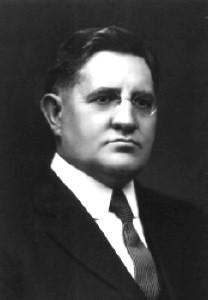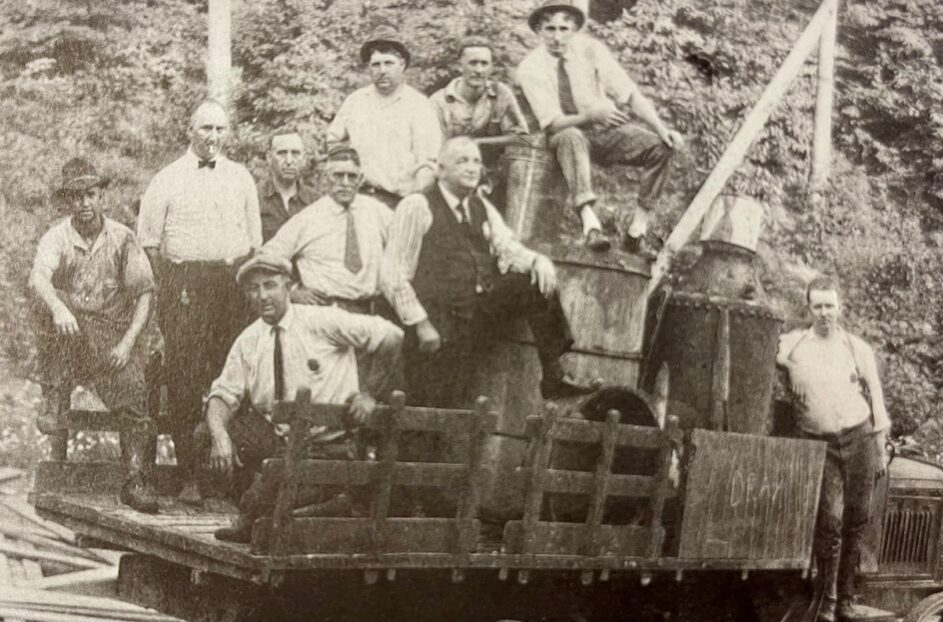The defendant was hoping to skate on a technicality. The judge was having none of it. It was January 1926, and one Arthur Cox of Lyons Bend was in the hot seat. Prohibition was still the law of the land, but the 1920s weren’t called “roaring” for nothing, and Knox County was a hotbed for the illegal alcohol trade.
Seven months prior, Cox found himself on the wrong end of a vice investigation. He didn’t have a rusty still hidden up a holler further from the reach of law enforcement. Though three miles out of Bearden would certainly have been predominantly rural nearly a century ago, it wasn’t exactly the middle of nowhere. Perhaps he thought hiding it in plain sight was the better approach: the closer he was to danger, the safer he was from harm. Or something like that.
On June 10, 1925, Cox’s property was raided by Knox County Sheriff Walter Anderson and prohibition officer West Wynn. The bust resulted in the “capture” and destruction of one of the largest and most elaborate distilleries ever found in East Tennessee, along with 1,800 gallons of beer. That’s 14,400 pints.

Judge Xenophon Hicks (Photo credit: Library of Congress)
To be clear: beer is brewed, liquor is distilled. Both processes require fermentation, but use different mechanics for the end result. But beer can be distilled to make whisky. That’s the CliffsNotes explanation, but it’s important for later.
Cox’s still was built underground. It had a 10-horse power steam boiler and the capacity to produce 500 gallons of “honest to goodness” liquor according to officers who participated in the raid. The compartment was built from quartered oakwood and his set up included a run-through barrel of charcoal and several thicknesses of all wool blankets, the only real way to make pure corn liquor, per experts at the time. No, he wasn’t running rotgut through an old radiator. He had plans for some high-end bootlegging.
The whole contraption had to be dynamited out of position, which nearly took out Cox’s garage as well as his chicken coop. The chicken house hid the entry to the elaborate bunker, a tunnel led from a manhole under a concrete trap door 4 inches thick that was covered by 2 feet of loose, dry dirt. It was the only way in or out.
Cox was arrested and jailed, but bonded out to await his day in court. By the time that day came, he apparently was hoping to get out on a possession charge for the beer, though I’m pretty sure the amount he had would qualify as “intent to sell.” Whether he brewed it or bought it is unknown.
His fate was in the hands of Clinton native Xenophon Zenus Hicks, at the time judge of the U.S. court for the Eastern District of Tennessee. Appointed by President Warren G. Harding, Hicks later served as circuit judge for the U.S. sixth circuit Court of Appeals.
Hicks informed the defendant he was convinced he was preparing to go into the wholesale liquor business. Cox pleaded with the judge, that though the beer was ready, he had never made a run of whisky. His attorney chimed in that the boiler had never even been set up.
Cox smiled a little when Judge Hicks cracked “I suppose he was waiting on the plumber.” But that smile turned upside down when Hicks hammered him down for five months in prison.
Beth Kinnane writes a history feature for KnoxTNToday.com. It’s published each Tuesday and is one of our best-read features.
Sources: Knoxville News Sentinel digital archives, McClung Historical Collection digital archives.

